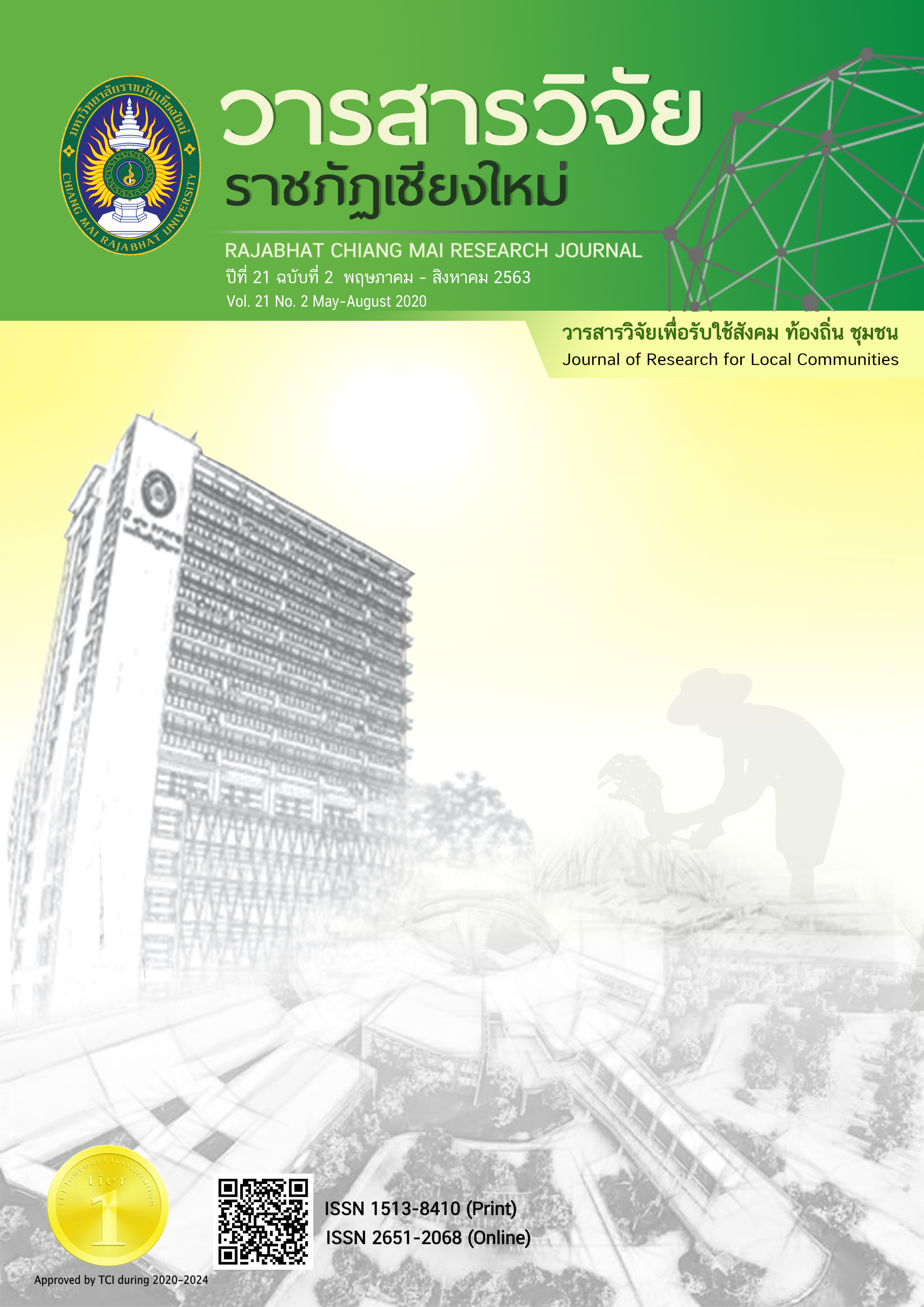Development of Life-Long Learning Skills for grade 10 students by Mobile – Learning (m – Learning)
DOI:
https://doi.org/10.14456/rcmrj.2020.235689Keywords:
Life – long learning skills, Life – long learning skills measurement, obile-Learning (m-Learning)Abstract
Life-long learning helps people both in knowledge and ability. These encourages people in continuing of learning, always developing themselves, self-care, and be able to choose what to study in accordance with lifestyle and their own work. The learning which could be anywhere and anytime resulting to personal development practical abilities no matter what career they are in. The researcher therefore developed life-long learning skills. The target group was 36 students of grade 10 at Kalasin Pittayasan School, Muang District, Kalasin Province in the 1st semester of 2019 academic year. The research tools were mobile-Learning (m-Learning) activities plans and the life-long learning skills were measured with the 5-levels estimation scale in 5 parts: technology skills, learning skills, searching and analyzing skills, self-reliance skills, and language skills, totally 15 items. The IOC was range 0.8 - 1.0 with the discrimination between .298 - .772, and the reliability between .721 - .865. The action research was operated divided into 2 circles. The statistics for data analysis were mean and standard deviation. At the beginning the targets were 6 students with life - long learning skills at low level (mean = 2.30, Standard Diviation = 0.86) and 3 students with life - long learning skills at lowest level (mean = 1.38, Standard Diviation = 0.66). After the 1st circle of operation was left 4 students with life-long learning skills at low level (mean = 1.93, Standard Diviation = 0.59) and at the end of the 2nd circle, all students hold life-long learning skills at a high level (mean = 4.33, Standard Diviation = 0.67).
Downloads
References
Choomsai, J. C. (2008). The Characteristics of Lifelong Learners of Undergraduate Students in the Senior Year. (Ph.D., Srinakharinwirot University). (In Thai)
Chuensationsup, K. (2005). Community Way, A Learning Guides Makes Community Work Easy, Effective and Fun. Bangkok: Health System Research Institutes. (In Thai)
Donald, J. J. (2004). Ensuring the Basis for an Effective Corporate Governance Framework. Composition and Analysis, OECD PRINCIPLES OF CORPORAT GOVERNANCE, 12 (1), 15-17.
Narot, P. (2001). Lifelong education. Journal of Academic Service Center Khon Kaen University, 9(1), 6-11. (In Thai)
Sakcharoen, P. (2015).Adult Learning Theory and Self-Directed Learning Concept: Learning Process for Promoting Lifelong Learning. Journal of the Royal Thai Army Nurses, 16(1), 8-13. (In Thai)
Sangsri, S. (2001). Lifelong Education Research Report for Thai Society in the 21st Century. Bangkok: Office of the National Education Commission. (In Thai)
Sattrapruek, S. (2017). Flipped Classroom in 21st Century Learning for Development of Learning and Innovation Skills. Academic Services Journal, Prince of Songkla University, 28(1), 100-108. (In Thai)
Sunretphol, N. (2004). A Development of Educational Indicators for Lifelong Learning. (Doctoral dissertation, Srinakharinwirot University). (In Thai)
Sunthanchai, S. (2005). Learning and Education. Nonthaburi: Office of Education Technology Sukhothai Thammathirat Open University. (In Thai)
Vate-U-Lan, P. (2008). Mobile Learning (mLearning). Retrieved from www.thaimlearning.blogspot.com (In Thai)
Downloads
Published
How to Cite
Issue
Section
License
1. Articles, information, content, images, etc published in the “Community and Social Development Journal” are copyrighted by the Community and Social Development Journal, Chiang Mai Rajabhat University. In order to properly distribute the articles through print and electronic media, the authors still hold the copyright for the published articles under the Creative Commons Attribution (CC BY) license, which allows the re-distribution of the articles in other sources. References must be made to the articles in the journal. The authors are responsible for requesting permission to reproduce copyrighted content from other sources.
2. The content of the articles appearing in the journal is the direct responsibility of the article authors. The editorial board of the journal does not necessarily agree with or share any responsibility.














